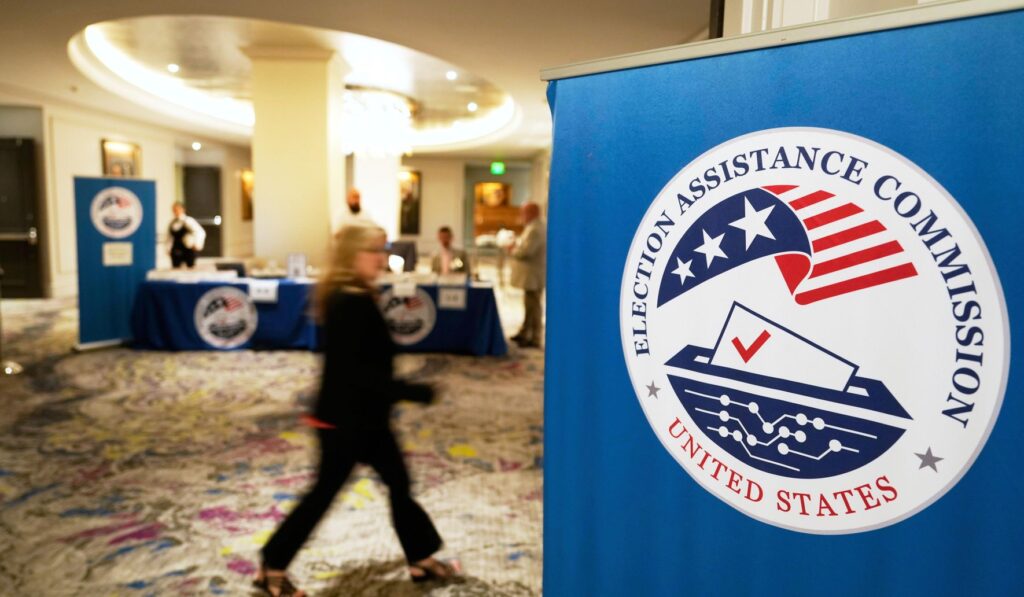President Trump wanted the federal voter registration form to require documentary proof of citizenship, but a federal judge said that requirement cannot be enforced. This ruling touches registration rules used across states and raises big questions about federal power, state control, and how to protect the vote. The debate is about integrity versus access, and the court choice shifts how the fight will play out going forward. The ruling will push proponents to pursue other legal and legislative paths.
President Donald Trump’s request to add a documentary proof of citizenship requirement to the federal voter registration form cannot be enforced, a federal judge ruled Friday. That sentence stands as the moment when a federal court put a stop to a national-level attempt to change how people register for federal elections. Supporters of the change argued it was a commonsense guardrail against noncitizen registration, while opponents warned it would create barriers and confusion. The judge’s order means the status quo on the federal form remains intact for now.
The federal voter registration form has long been a baseline tool for people who want to register to vote in federal elections, and any change to that form has ripple effects across states. Conservatives have pushed for tougher verification requirements because they see a real problem with dead voters, duplicate registrations, and occasional noncitizen filings that undermine confidence. That concern is straightforward: if people doubt the integrity of elections, turnout and trust can fall. The court blocking enforcement denies supporters a quick, uniform fix at the federal level.
From a Republican viewpoint, the judge’s decision feels like a missed opportunity to tighten a national standard that voters can easily understand. Many conservatives believe states should still be free to adopt proof-of-citizenship rules, but a federal form sets expectations and reduces patchwork inconsistency. The current approach leaves differences between states that complicate enforcement and public confidence. If federal action is off the table, then state legislatures and Congress must pick up the slack.
Opponents argued the change would have deterred eligible voters by creating unnecessary paperwork and confusion, especially among groups that already face hurdles to registering. That argument resonated with civil liberties advocates and some Democratic officials who framed the move as restrictive. The judge clearly bought into those concerns enough to prevent enforcement, saying the government could not impose the new requirement through the federal form in this way. For conservatives who prioritize straightforward verification, the decision underscores that litigation can block policy even when supporters see common sense in it.
So what happens now? Legal strategies will shift. Supporters of proof-of-citizenship rules can pursue state-level legislation or try to pass a federal statute via Congress, where the issue can be debated openly and decided by representatives. That path is longer and politically fraught, but it avoids the judge-by-judge uncertainty that comes with executive action. Republicans in state capitals and in Congress who want to secure registration procedures will need to make the case to voters and lawmakers directly.
There are practical alternatives that remain on the table. States can tighten verification of citizenship through DMV checks, cross-referencing with Social Security or immigration databases, or by improving election administration and voter rolls. Those steps require funding and political will, but they do not depend on a single federal form. Conservative activists argue these are the sensible, resilient routes to reduce irregularities without inviting nationwide legal challenges.
This ruling also matters politically. It will energize both sides: opponents see relief from what they called an exclusionary policy, while supporters see reason to push harder at the ballot box and in statehouses. For Republicans who prioritize election integrity, the ruling is a reminder that courts can block policy moves and that durable solutions usually come from legislation or state action. The fight over how to balance access and verification is far from over, and the next steps will determine where the advantage goes.
Expect debates to get louder and more tactical. Conservatives will press for state laws, improved administrative checks, and a clearer legislative strategy in Congress. The opposing coalition will push for easier access and guardrails against voter suppression claims. For now, the federal form stays as it is, but the conversation about proof of citizenship, voter confidence, and the proper role of federal authority will keep shaping policy and politics in the months ahead.



